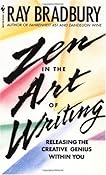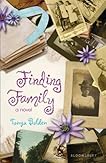 Becoming a Writer by Dorothea Brande
Becoming a Writer by Dorothea BrandeMy rating: 2 of 5 stars
First published in 1934, Dorothea Brande's Becoming a Writer has been widely regarded as a classic. It must have been thrilling for young writers in the threadbare 30s to be able to access Brande in this way as I imagine she was among the first to offer guidance which neither reeked of pragmatism nor developed within the noble goals of the WPA.
In the 1930s many young writers were advised to gain some experience as a journalist if they wanted to be a writer in the long run--after all, you can make a dime that way. The artistic movement at the time, social realism, blended with this concept. A journalist could best experience the economic hardships and realistic portrayals of people and society if he/she was out in it. After all, the ills of society were everywhere.
Brande's advice moved writers in the opposite direction. As I read I kept coming back to 1934. Her advice is dated but charming, yet within the context of when it was produced--John Gardner (who wrote the forward) was one-years-old, Tropic of Cancer hit the bookstands, Ulysses had recently been allowed into the United States, and the mass inception of paperback books was less than a year away. Writing and publishing were changing. Social reality was being documented and held up to the light of art. Yet, Brande proposed that the developing writer had to treat the life they pursued as an art, yes, but in the purest sense. They had to work at it in solitude...the young writer's eye was not to be cast outward but turned inward on the self.
She makes the point that great musicians or painters don't cobble their talent by announcing to everyone they meet that they are a musician or a painter. No! The more you talk about it the less progress you will make as the brain and soul will grow satisfied with the mere affirmation--I am a writer. Don't tell people that. Sit down and write!
I imagine many young men and women leaving the old homesteads and flooding the streets of Chicago, New York, Philadelphia, and Baltimore looking for work while telling people they are writers...for some ulterior motive: to protect their joblessness or perhaps to garner a little more curiosity from the opposite sex. Regardless, it must have driven Brande crazy as she returns to this sentiment often:
If at four o'clock you find yourself deep in conversation, you must excuse yourself and keep your engagement. Your agreement is a debt of honor, and must be scrupulously discharged; you have given yourself your word and there is no retracting it. If you must climb out over the heads of your friends at that hour, then be ruthless; another time you will find that you have taken some pains not to be caught in a dilemma of the sort.
I appreciate Brande's instruction. If you are going to write, write! Not only does she promote the setting up of a strict schedule as I've read and heard many contemporary writers swear by, she also suggests the purchase of two typewriters...one portable and silent if possible. And don't drink so much damn coffee, drink maté if you can. Charming. Type at all costs. Yet treat anything you write physically like a work of art, even if you are writing on a bar napkin after climbing out of the booth and over your date at happy hour. Hang on to that napkin more resolutely than you do the girl!
In the end, Brande's Becoming a Writer is interesting to me from a historical perspective. She was an original and if you read books on the craft published within the last decade you'll find many of her influences repeated. The concept that most of the source of what we write found seeds in our childhood (write what you know) is Brande. Read other writers, not just what you like is also Brande.
If you like history or have any interest in reading the book which would have moved a generation of great authors then Becoming a Writer is worth the time to read. However, if you are looking for advice or activities for your students or classroom there are other books published today which serve that purpose--this isn't that.
http://walkthewalkblog.blogspot.com/
View all my reviews









I imagine that some of my colleagues or friends who are teachers elsewhere may not think of themselves as a writer if they teach math, physical education, science, or maybe even social studies. Yet, the fact remains, we all write a lot in our profession.
I started my blog in November…at the same time that I committed myself to participating in Nanowrimo with my students (write a novel in a month) and reading more YA fiction. T he reaction from my colleagues (and friends) has been mixed: pats on the back and one recurring question…how do you find the time to write a blog?
If nothing else, writing the blog (almost daily) has kept me mentally healthy. I do not feel the burnout which normally creeps in this time of the school year. And here is where I draw a connection to the unfortunate tirade by the Bucks County teacher. It comes as no surprise to me that something erupted somewhere in February. February and March are typically bears emotionally for teachers...and this particular teacher took to writing publicly on a blog to vent, lash out, and exhale.
This has really just made me wonder how necessary writing might be for a teacher--and yet it isn't really taught to educators to do. We are encouraged to share ideas. Many teachers over the years have expressed disappointment that we are not afforded the time to meet to discuss the craft, the lessons, the success. I have been around occasional attempts to join teachers together to share, but they don't stick. We end up back in our rooms writing everything we need to so that our classrooms can function correctly tomorrow.
I'm happily engaged in weekly online conversation on the English Companion Ning. It is a website where English teachers across the country share ideas, lessons, concerns, etc. The site has attracted student teachers, elementary school teachers, all the way through college professors and heads of education programs. It hasn't become a place to vent; instead, it is a healthy place to exercise the muscle. Many agree that daily exercise removes stress…yet, my recent participation in writing about the profession has left me wondering about the benefits a staff blog or even a network where teachers in your district write a professional blog as professional development and they all link to one another...who knows what positive change that might produce.
Elementary school, middle school, and high school teachers rarely meet to simply talk about what they do. Our understanding of what comes before us or after us is not as clear as any of us would like. Imagine a network of teachers in your district blogging about the profession...imagine being afford the time to do it yourself...to read, to write.
I know there are lots of wrinkles to work out--who would see it, who would contribute, is anything off the table, what about people who abuse it, and some will exhale that they have no time to write such a blog, and so on. There are educators out there who even poo-poo at the idea of any educator sharing anything (let alone a creative thought) online--"who cares about Facebook, Twitter, Blogging...who cares what Person X has to say"...I don't know that those people will ever come around to our way of seeing the benefits of technology, but they won't be reading this blog entry anyway. There are districts who even suggest to their teachers that it might be a good idea to remove Facebook pages, blogs, et al. Either way they would be missing my intention here: to raise the issue that all teachers are writers and maybe we all need to be encouraged to write in a healthier way. Maybe we (educators) need to push to adjust what we are asked to write and how we are asked to collaborate. There are great ideas tucked away in so many of my colleagues--and rarely do those things come out unless by chance in conversation.
The benefits of writing as therapy are well-documented. Writing helps one clear his thoughts and understand feelings. It helps us solve problems or work out solutions at our own pace. I know it has helped me manage the stress which I can feel at work.
Not everyone might see asking a teacher to write a weekly entry into a staff blog as a good thing. Some might actually find more stress in it--writing doesn't come easily to everyone.
The teacher in Bucks County got me thinking that there is clearly a need for all teachers to be encouraged to write. Until the day comes when we are encouraged to write and keep a professional blog, I encourage my friends to seek out those safe professional places to write and share your thoughts and ideas.
Writing just might help smooth the waters of your next _____ years of teaching.